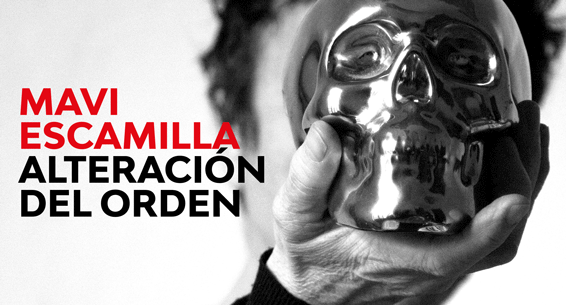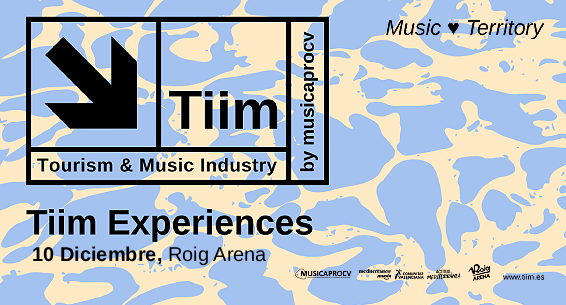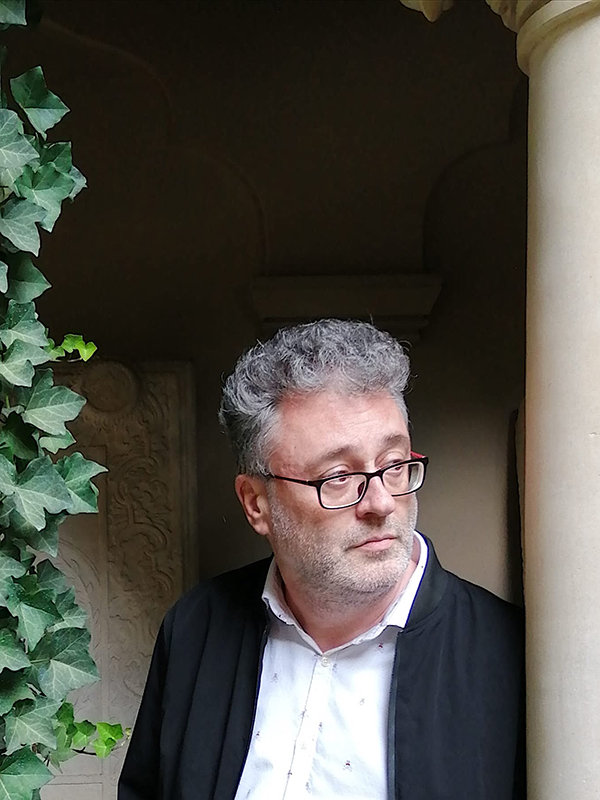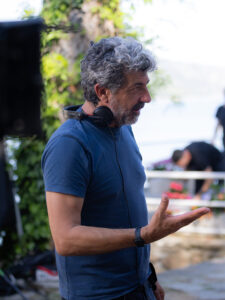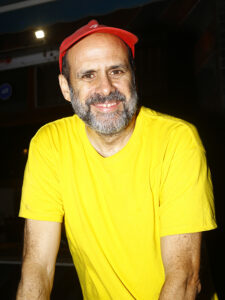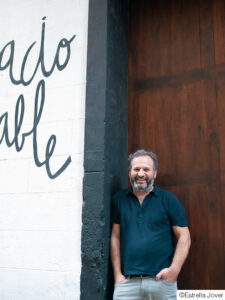This October the Mostra de Valencia Cinema del Mediterrani returns with new proposals and, above all, a dense program of projections. We chat with Eduardo Guillot, artistic director of the contest and responsible for its programming with whom we discuss the news, We talk about the world of auteur cinema and festivals, and much more.
As you have published, The Mostra has increased its budget by almost a 50%. At a time when everyone is asking for more for their festivals, How was the negotiation with the City Council to reach those figures??
Bueno, It's just that we haven't uploaded a 50%. What happens is that in previous years we have had a budget from which we have requested extensions to reach the amount we needed to hold the festival.. This year, for the first time, when we propose the initial budget, We asked for all the budget we needed and it was granted.. Of course, Compared to what was originally requested, it seems that the increase is very large, but, In fact, What happened is that what we asked for, then it expanded. The issue with budget expansions is that, probably, They arrived in October, when you were already in the middle of the festival. What this has allowed us to do is work with greater comfort and greater foresight., y, above all, to be able to face the co-production forum that we had been wanting to do for a long time, but that involved infrastructure and a budget that until this year we have not been able to assume.
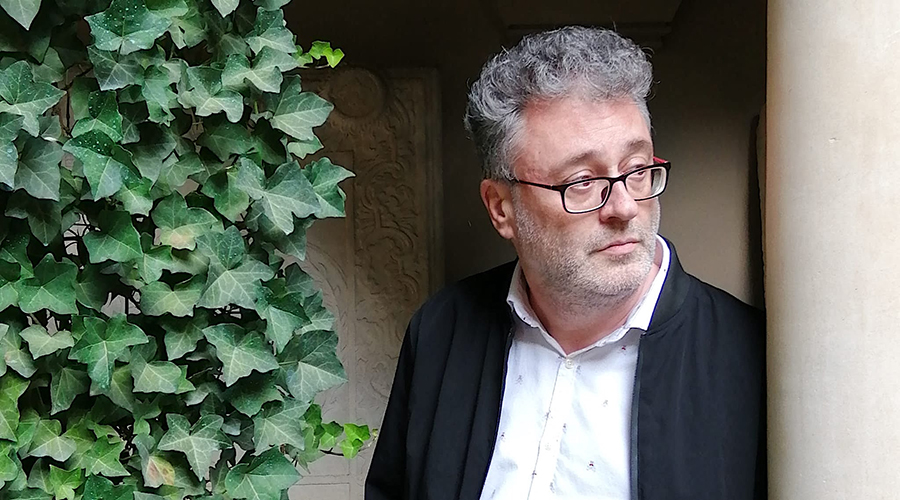
I understand, so, that there will not be major changes in terms of the bulk of the programming. Or does this somehow vary your ability to, apart from the forum, carry out other proposals?
There is an important change in programming that, somehow, could be related to the budget increase, and this year we significantly increased the number of films that are projected. But that has less to do with that reason than with the fact that two of the cycles that we are going to program involve a significant volume of films.. The cycle that we dedicate to the 20th century of Greek cinema, which we premiere in Spain in collaboration with the Greek Film Academy, It is a cycle of 40 movies. Until now we had done a cycle of 20 movies screened twice, but not a cycle 40 movies, of which, besides, more of 30 They are unpublished in Spain. Y, on the other hand, We have the Palm Tree of Honor to Robert Guédiguian of whom we are going to project his complete filmography. And it is not the same to project 22 feature films than Jeunet's films [Jean Pierre, Palm of Honor, 2021] which are much less. All of this means a lot more spending., not so much for the transport of the films, because today you already know that it is digital, but yes in rights payments, subtitled, etc. That is to say, all the expenses involved in making a cycle with a high volume of films.
It's not difficult to guess, but the question is obligatory. like you said, the Palm Tree of Honor of the Mostra 2022 falls to Robert Guédiguian. tell us, why Guédiguian?
Well look, I'm very happy that you asked me that question. (laughter). And I'm happy for many reasons. A main reason is that we have noticed a spectacular reception to the cycle and the Palm Tree of Honor to Guédiguian by the generations who know Guédiguian's cinema. But, at the same time, We knew that the younger generations are deeply unaware of it. I speak in general, evidently. And it seemed to us that, in the situation in which the world and Europe find themselves, we had to return to Guédiguian, watch his films and realize what he has been talking about for a long time, of the situation of the working class and the situation of the Europe in which we live. On the other hand, It was necessary to recognize the career of a filmmaker who has such a deep connection with the Mediterranean because, how do you know, many of his films are set in Marseille. For all this, He seemed like an absolutely perfect candidate to us.. Besides, there was a plus. We contacted Guédiguian to propose the award many months ago, and the fact that he accepted when he accepted allowed us to complete the cycle in a way that we really like.: dedicating a book that we have commissioned to Aarón Rodríguez Serrano. The book is a study on Guédiguian's cinema that I believe marks a milestone in cinematographic historiography in Spanish.. A study that breaks the usual way of working in Spain, which is to tell us chronologically about Guédiguian's biography and films.. The book interrelates a lot of issues, jumping from one movie to another, talking about themes that are interwoven between different films… I think it is a very brilliant work and we are very happy that it can accompany the cycle and the presence of Guédiguian in Valencia.
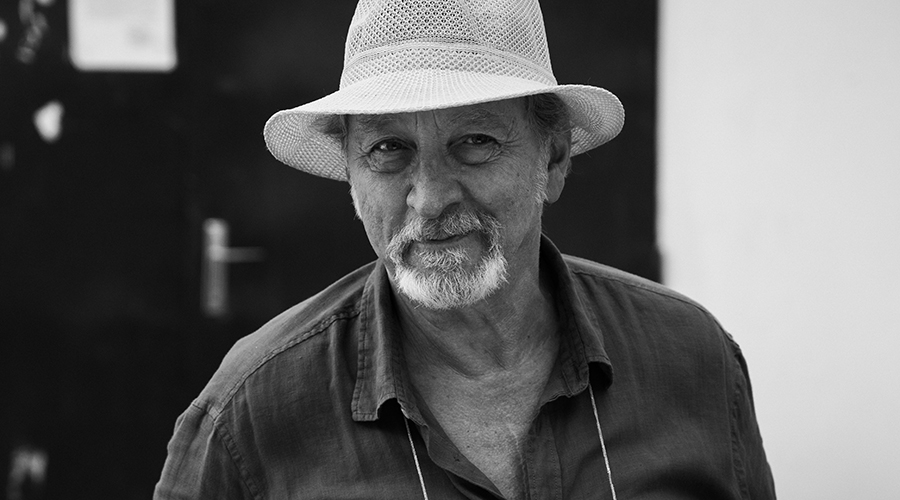
Regarding Guédiguian's cinema, especially in Spain, I have the impression that, perhaps because of these things of immediacy or because of that habit of always looking for that new director, new works by directors with greater experience seem to end up being a little underrated. Precisely at a time when certain social movements or an awareness of social conflicts is more active, It seems that their relevance is lowered or the rating of their films is somewhat devalued in such a way that their projection or dissemination seems to be affected.
No, I do not share the word contempt. I don't think he's ever been underestimated.. In fact, His films have mostly reached Spanish commercial cinemas.. Even a movie like Mali Twist, in which it does not have its usual cast of actors and that goes a little outside the themes it usually deals with, has been released. All his movies, since time immemorial, premiere at prestigious festivals. Guédiguian is a filmmaker who is not the height of postmodernism. He doesn't make movies like Titanium (laughter) or like other films that may be setting certain trends, but he has been true to himself. I think that, sometimes, He does not have the consideration of other directors because he is not as condescending. He talks about the working class, but it also shows its contradictions and that makes them uncomfortable.. But, precisely for that, his look seems more interesting to me, because it generates debate. We are used to what in Europe (and I emphasize, in Europe) we call social cinema, It has to be a cinema with characteristics that satisfy the usual progressive audience of auteur cinema who wants to feel gratified when they watch a film and who does not want to feel how they are directly challenged., how they ask uncomfortable questions. I think Guédiguian's cinema continues to ask those uncomfortable questions, that's why it seems valid to me. Yeah, it is true that, when a Guédiguian film arrives, one can say: “ah, the twenty-third. It's not the first of I-don't-know-who who is breaking the cord. Vale, but being true to yourself, to be constant, not to give up, to stand firm in a world where there are international festivals that ask directors to change their films to select them, I think that honesty is worthy of merit.
The Official Section of the Show, Although it has focused on dealing with social or political conflicts that, one way or another, affect the different countries of the Mediterranean area, It has also been opening up to other topics not so directly related to these issues.. How have the selection parameters changed throughout these last editions??
There has not been any change in approaches for the simple reason that we are not a social or human rights film festival nor do we have one in our name.. We are a film festival produced or co-produced by Mediterranean countries. Evidently, A Syrian or Palestinian film is very likely to address social or political issues due to the situation in that country.. But we have never been a festival focused on those issues. Us, The only thing that guides us is trying to get the best movies we see. In fact, Last year we had two comedies in competition. Or the Focus section with Marc Hurtado, which is more connected to rock culture. Nor can it be said that Jeunet is a social film director, as we understand it. We believe that a film festival has to set a very clear editorial line with its programming and the Mostra has it.. But, at the same time, We are never going to select a film because it deals with a hot topic, socially or politically, If we don't consider it to be a good movie. This year we have Klondike (Maryna Er Gorbach, Türkiye-Ukraine, 2022) which is a film that is set in the Ukrainian war in 2014, but what did we see before the invasion of Russia. Beyond it being a current topic, We screened it because it is an excellent film.. It is the quality of the films that marks, not the content at the plot level.
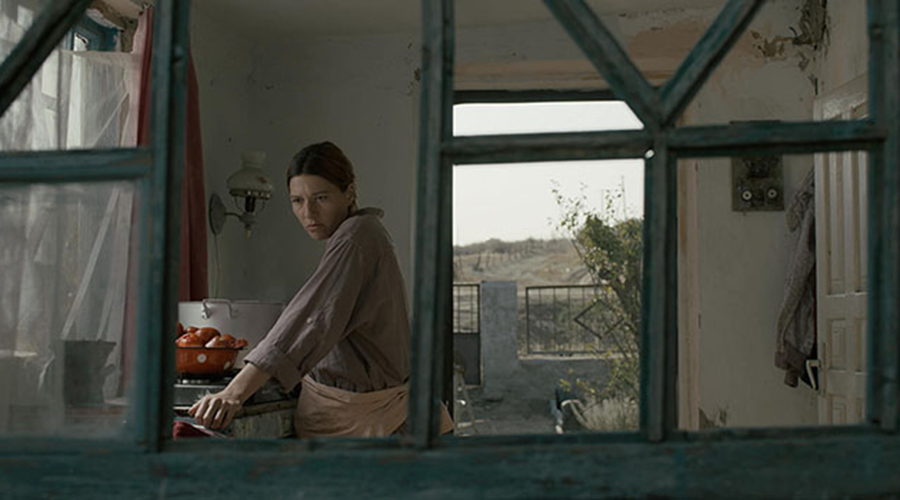
This year there are six women directors in the Official Section. The presence of female directors is a recurring issue in all festivals. How do you assess the situation?
Bueno, I think it is evident that it is growing. All you have to do is see all the international festivals in the world. But that has to do with two reasons.. A, that we have finally been aware that women were in a clear minority. and two, that more and more women were agreeing to make films. I would make a nuance here, and we have to have some parameter. Generally the parameter is “led by a woman.”, but there are also times when we have films directed by men in which there are more women than men in the technical and artistic team and, however, It's considered a one-man movie because it's directed by a man.. I believe that the next step is that a film can be considered about women without the need for it to be directed by a woman because there is an overwhelming majority of women participating in the film.. In 2023, el CineMart de Rotterdam, which is an international co-production market, has announced that the 100% of the projects presented are from women. If you can choose a 100% of women's projects is because they have presented many projects and they are of sufficient quality. It is a topic that we like to take into account, but just as I told you that a film because it has social content is not going to enter the Mostra if we do not think it is a good film, the same thing happens with this. In that sense, It is true that it is the first time that we are going to have equality in the Official Section, that not parity, that is to say, what is going to be 50-50, and that makes us happy because it shows that there have been many more women's films this year to choose from.
One of the peculiarities of the festival is that it confronts the viewer with cinematography with production and formal standards different from those they are used to.. And here I'm not just talking about the viewer who consumes cinema. mainstream, but also from those who consume auteur cinema. Sometimes it seems that “poorer” cinematography from a production point of view implies “worse” or “less good” cinema.. How do you see the public reacting to these cinemas??
I think that thinking that is a mistake. But the way the public reacts is the way it has reacted since La Mostra existed.. What I have heard people say the most when La Mostra returned is: “look how good, because it was the only place where we could see a certain type of cinema.” Now, For example, has been released commercially Feathers (Omar El Zohairy, 2021), a magnificent egyptian film that, besides, goes beyond the standards of Egyptian cinema, but also what European cinema considers auteur cinema. But more should come, not only from Egypt, not only from the countries on the southern shore of the Mediterranean, but of many other films that we do not know because the selections of the great international festivals, which are the ones that decide the trends of cinema internationally, they don't want. Some films from those countries are introduced as a quota, so that it has some presence and then it turns out that many of those films have a lot of value. This year we have a Tunisian film that not only comes from being awarded at Cannes, but it already has distribution in Spain. Well, if it has a prize at Cannes and a Spanish distributor has trusted a director from Tunisia that no one knows with a cast that no one knows, there will be some reason. The reason is that it is an excellent movie. We more than meet those quotas, and we are also very proud to see how directors who have passed through La Mostra as something exotic, Three or four years later they go to huge festivals with another of their films and win international awards., which shows that very good cinema is being made everywhere. In 2018 We brought Nacer Khemir who is a filmmaker who, in the francophone world, I no longer say in the African world, that also, He is an intellectual authority and no one here knows what his name is or how to spell his name.. That seems like cultural impoverishment to me.. Of course, I cannot tell the exhibitors and distributors what they have to buy and what they have to display., but that diversity that the platforms talk about, For example, where is?
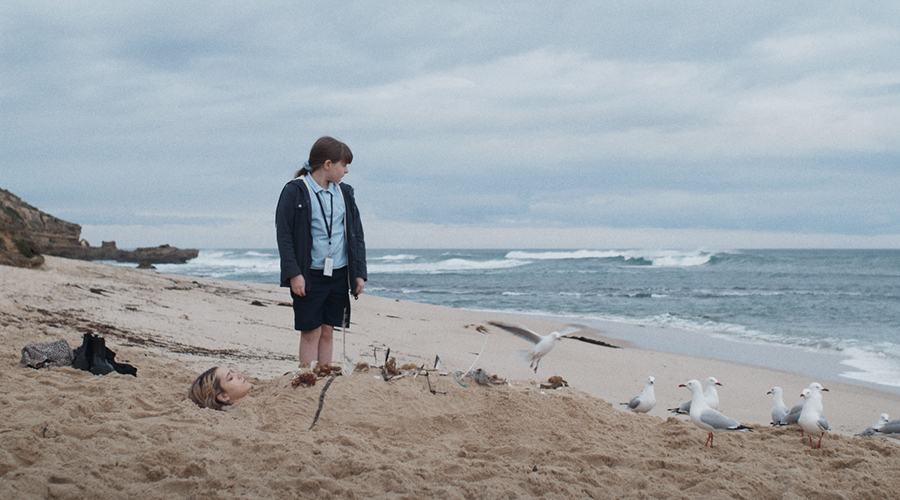
I was going to ask you precisely about that.. Because it may not be a contradiction to talk about diversity, shoehorning it into a production model that is orthopedic, What is the fact of “racializing” three characters in a series and that's it?, but, at the same time, create a wall with respect to other culturally diverse cinematographies. Woody Allen lamented the fact that in his childhood films from all over the world came to the United States, and now it is not displayed in any way.
That is the evolution of the Sundance festival, For example. Suddenly, create two sections, one is world cinema, he world cinema, and the other American cinema. North American cinema will always have its awards because, In fact, is the one they care about. Then, We are going to give people from other latitudes the opportunity to show us those “weird” things they do.. It is often said that Apichatpong's films [Weerasethakul] They are on the platforms. Yeah, but, How many algorithms do they come out in according to what you see?? How much publicity do they receive?? None. The own originals that they produce, they ask that they be global because they have to sell them all over the world.. The more global, that is to say, the more uniform what is being counted, it will be easier to sell. But, Of course, It will also have less identity of any kind. Rather they will be clone series or movies. This is something that is also happening with auteur cinema with the issue of laboratories and workshops., etc. If they all have the same mentors and they all say the same thing to everyone to whom they apply their criteria, in the end we will also have clone movies.
In that context, A phenomenon is occurring and it does not seem that there is a generational change in terms of a type of spectator who is, culturally speaking, willing to be seduced by these types of cinema. Admitting that it is very difficult, What three or four lines could be the key to reversing that trend??
I think that, in these moments, It is very easy to diagnose and very difficult to find remedies. You realize it in international markets like Cannes. We continue to work according to a model that is becoming obsolete and that has to change. Platforms have been good for many things, but, at other levels, It's not good for the culture.. It is evident that consumption patterns have changed.. It is difficult for new generations to go to theaters if we are not talking about an event film or one with a series of very specific characteristics., but I think that, precisely for that, Spaces like film libraries or festivals have to be more radical than ever. What we cannot do is put the movies that are on the platforms, or the movies that everyone can see with one “click”. If we are talking about not making Egyptian cinema known and then programming Stranger Things, we are being contradictory. Since I arrived at La Mostra we have scheduled cycles that, when I have sat with my team at the table, I have told them: “four are going to come to this”. But if the four who come that year discover something that interests them and talk to their friends and next year there are fourteen and the next year twenty-five, In the end we will have full rooms. That's what Seville has done, This is what Gijón has done, bringing filmmakers who had never been to Spain and going through that journey in the desert which is proposing things to people that they don't know and convincing them that they are worth it. In the end, you create an audience. In 2018 Not a single one of the films we had in competition had Spanish distribution, nor do I think they got one later.. This year we have three or four films that already have distribution before being screened. That is to say, that the profile we are beginning to build is beginning to interest. The thing is that this is a very thankless job and it is very easy to get discouraged and say: this costs a lot; I do three or four cycles that the press pays attention to and that's it.. Yeah, but, What relevance does the festival have?? We want to be a relevant festival. And if we get it, that will have a public response. I am absolutely convinced.
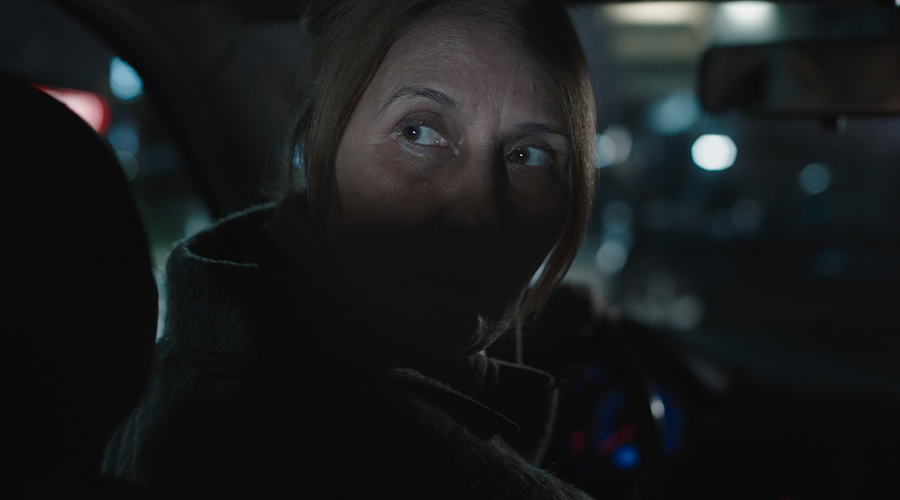
While you were commenting all this, It brought to mind a reflection that I have been thinking for some time and that is that perhaps we could be in danger., (and this is something that is also affecting the modes of production; we were talking before labs of projects), and festivals end up becoming the exclusive screening circuit for certain films, but not as a catapult to reach the general public, what was traditional, but as an end in itself. And I'm not just talking about unknown filmmakers, This also affects the big names of auteur cinema.
Yeah, I believe that things have changed to the point that today only a Palme d'Or in Cannes guarantees you a certain visibility. and be careful, a movie like Titanium [Cannes Palme d'Or 2021] did not make the final cut at the Oscars and in Spain the figures [box office] I'm sure they have been low. This year yes, because it was a Spanish film [Alcarras, Carla Simon, 2022] but the previous Berlin Golden Bear, a magnificent film by Radu Jude [An unfortunate fuck or crazy porn, 2021] In Spain it has only been seen in streaming. There we have a disconnection problem. Evidently, all the cinema that goes to the festivals is not going to reach the theaters, but maybe what we have to go to is see what are the criteria according to which certain international festivals are programmed. Then, At national festivals we also have the problem of how easy it is for some to open the box and put in four Cannes films., four from Berlin and four from Venice. But there is more cinema. Us, without being able to stop going to those festivals, We are starting to travel to others that are not so in the media, but they also release movies and where there is less competition. And then we have another line of work which is to look for what we call the films that are below the radar.. This happens a lot with the countries on the southern shore.. Beyond the Algerian film that goes to Cannes or Berlin, very few people care to know what else has been done in Algeria. And suddenly we discover films that Filmin then ends up buying to put into production. streaming or who end up going to other festivals. At the same time, you see films from those “minorized” countries in the selections that are clearly there to cover a quota, because they are not at the level. In the end, Doors that are ajar or closed are going to have to open and things are going to have to change.. Another thing is how these processes occur., because when something works by inertia, let it continue working. I think that the pandemic has been a major cataclysm in that inertia and things are going to have to move in some direction.. Which? Don't know.
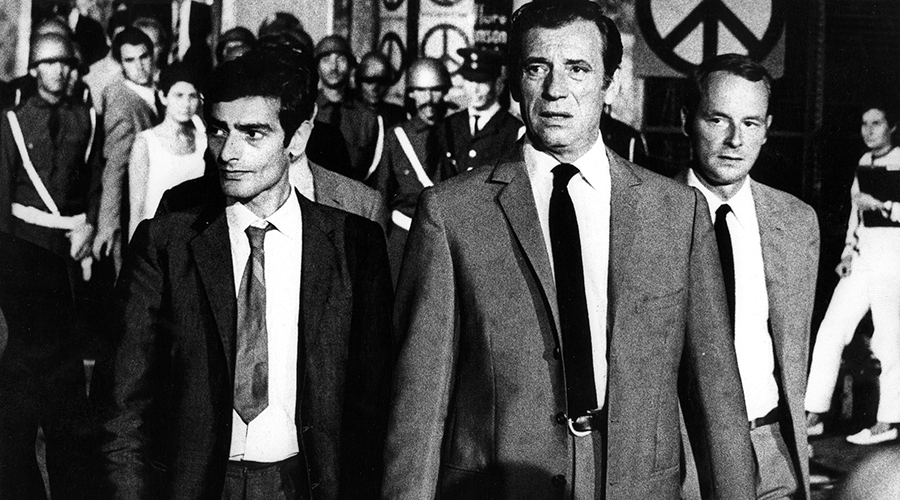
This year you launch the València Film Afers – International Coproduction Forum. What does it consist of??
It consists of generating a meeting space between ongoing projects and producers interested in financing them.. If one thing was clear to us from the beginning, it was that we had to launch an important section of industry, but, at the same time, We knew we didn't want to make a lab. I already know that the differences between laboratory, market or forum are, sometimes, very diffuse, But we don't bring projects here so that people can tell them how they can improve them.. We believe that a filmmaker has his own vision and that we do not have to tell him how to make his films.. I always give the same example. If a new filmmaker had gone with Mulholland Drive to all the film laboratories on planet Earth, in all of them they would have rejected him. Why this structure for the film? Why this fissure in the middle of history?? We respect projects that arrive as they arrive. Obviously there is a selection process. From there, We bring the director and producer of each project for two days and, in this case, to ten industry guests who are of the highest international level, so they can meet, learn about the projects and see how you can collaborate together. How many agreements can come out of there?? we don't know. But we know that putting them in touch is going to be very important for where they go next.. It is about creating a community of filmmakers that allows these relationships to consolidate., that the projects coexist, that they become known and that this generates more work for the future. That is the primary objective.
This year you dedicate a cycle to Greek cinema. As we said in the case of cinema Guédiguian, Talking about Costa Gavras or Theo Angelopoulus today is almost science fiction, especially for the new generations. What does this review of the 20th century history of Greek cinema offer us??
I think it brings the discovery of cinematography. Beyond you asking an average movie fan about Greek cinema, (If he is young he will tell you Lanthimos, and if he has a certain historical perspective he will name you, indeed, to Costa Gavras and Angelopoulus, If he has searched a little, he might tell you Cacoyannis), What seems to interest you about this cycle is that, there being a Gavras and an Angelopoulus, I would invite people to join any session because the selection that the Greek Film Academy has made is absolutely incredible. There are real gems that, among other things, They have greatly influenced directors like Yorgos Lanthimos. That is to say, that everything comes from something. Greece, except at specific times, It has not been a country that was at the level that France or England were at, It was certain Greek phenomena that occasionally reared their heads., but they have an impressive cinematographic tradition. There are films from different historical periods, Greek cinema had its era of genres, like Hollywood… It's incredible, For example, that of the forty films that we are going to screen, more than thirty have not been seen in Spain. Some have been through a festival. In fact, Hiding and camouflage [Nikos Perakis, 1984] It is a movie that won La Mostra at the time. The Ogre of Athens [Nikos Koundouros, 1956], It is a film at the level of M, the vampire of dusseldorf [Fritz Lang, 1931]. And so I could give you many examples.. Films ahead of his look at feminism, to his view on political and social issues… A film by Jules Dassin, who is a filmmaker associated with the films he made in the United States, It's another gem. I think it is a very valuable cycle and I would be very sad if it went unnoticed because I think it has impressive potential.
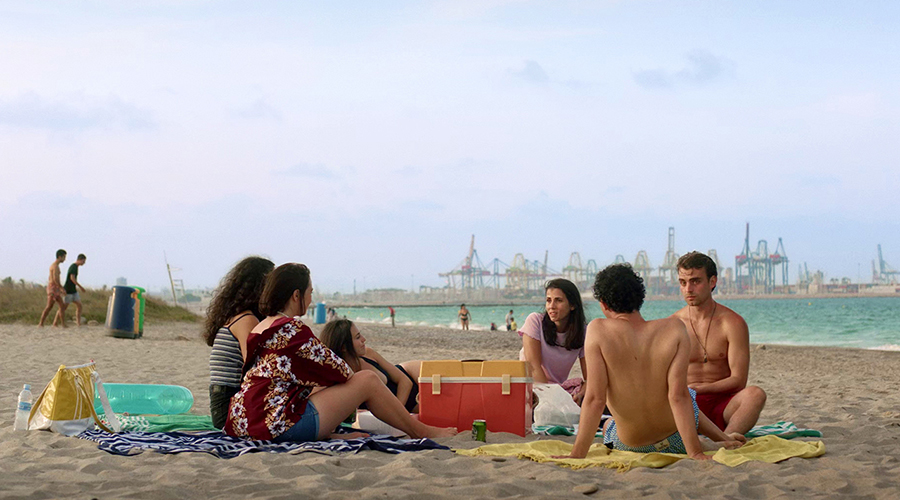
The festival opens with the film What we know, first work by the Valencian Jordi Núñez. Why have you chosen it to inaugurate this edition??
Since we returned there has been the possibility that we have always been able to inaugurate by premiering a Valencian movie. Movies that, in the last two years, they not only inaugurate, but they are part of the Official Section of the festival. How do you know, In the last years of La Mostra, a section called Mostra Valencia was created, reserved for all the Valencian production of the year., which was good for the industry because it had its own awards. But it seemed to me that it was putting Valencian cinema in a ghetto so that it competes with each other, but without entering the Official Competition Section. I think that, If a Valencian movie is worth it, can compete with the rest of the official competition. This year it is the case. I think it's a movie that's going to be quite surprising., because it's a bit peculiar. Inaugurations are parties, also, and this movie fits that character very well.. Two radically different characters participate in the film at a secondary level., but in the end with common points, as Rosita Amores, associated in Valencia with a series of very specific contexts, y Samantha Husdon. But, above all, This allows for a playful tone in the presentation., as it will also be at the closing.
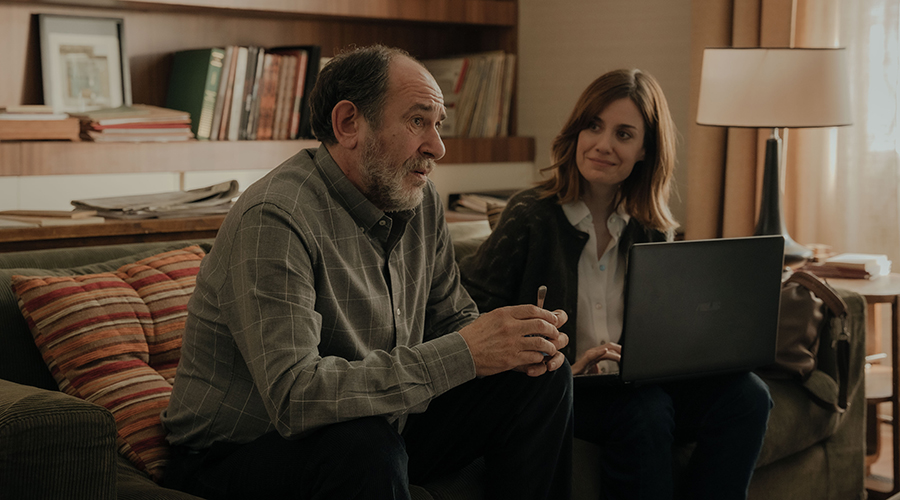
Talking about Valencian cinema and to finish, I would ask you for an x-ray, no additives, about the state of affairs.
The million dollar question (laughter) Yeah, I believe that Valencian cinema should reach a maturity in which we can make a critical historiographic review of its trajectory and be brave. This involves all the actors who are part of Valencian cinema.. I understand that there are reluctance on the part of some of them, but I think we have to take steps because that will help consolidate what we call Valencian cinema, whatever it is. On the other hand, I think we are on the right track. I don't think this should be economic or industrial chaos, but it is evident that, as aid and criteria have increased when selecting what is aided, has been giving results. I think that in recent years we can be very proud that films like Holy Spirit [Chema García Ibarra, 2021] and how Water [Elena Lopez Riera, 2022] have, not only industrial solidity, but authorial presence. I think it was a pleasant surprise for everyone that Holy Spirit won the Valencian Audiovisual Awards because it seemed that the sector was going one way and criticism or auteur cinema was going another way., and that communion was very important. At the same time, I think it is also important to make quality commercial films., make box office. Because we know that we are talking about films that do not make box office and cinema is an industry. I have been very envious for many years, both in an international festival and on general television, see a movie start and TV3 appear in the credits, Television of Catalonia or Basque Government, already out Eight Basque surnames, that does not have a good critical consideration, or a film by Carla Simón. That is to say, two avenues of work that make the number of films we make grow and, therefore, there are more possibilities to move them. Once that is achieved, the sector must also be able to look outwards. There are production companies that are working looking outwards: Pegatum is looking out, Suica is looking out, I think Nakamura has the will to look outside. It is very good that a film wins a Valencian Audiovisual award and enters a Provincial Council circuit and is projected in all the towns of the Valencian Community, but it can't be the goal. The objective has to be fighting to enter San Sebastián, for entering international festivals, to get a good distributor that believes in the film. That's not going to happen overnight., but we must also work in favor of work. In that sense, I think things have changed a lot in recent years., but we are still in development. We are on the right track, But I think we still have a long way to go..




